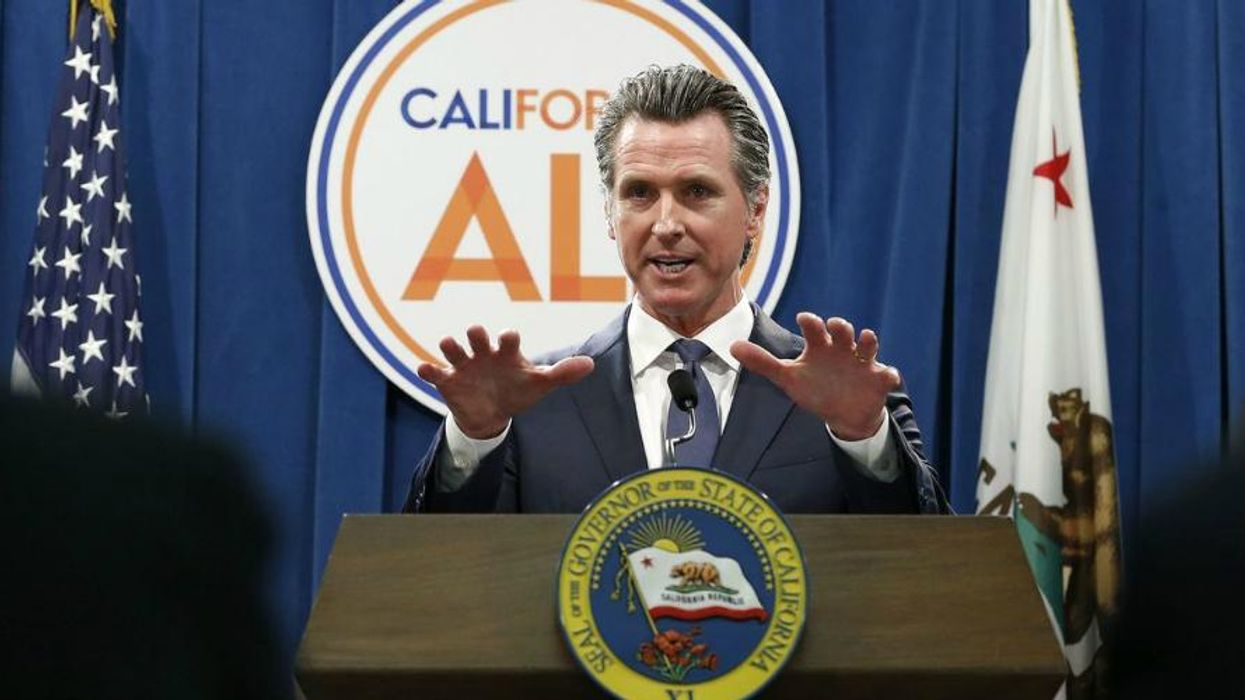In a statement announcing Zeldin as his pick, Trump unironically pledged the former New York congressman would usher in a new era of deregulation but ensure the United States has "the cleanest air and water on the planet." Zeldin similarly promised to achieve "U.S. energy dominance" while also "protecting access to clean air and water." Green groups responded with forceful criticism.
"We need a steady, experienced hand at EPA to marshal federal resources to fight climate change and utilize the full power of the law to protect communities from toxic pollution," Earthjustice president Abbie Dillen said Tuesday. "Lee Zeldin is not that person."
"His loyalty to Donald Trump indicates he will gladly take a sledgehammer to EPA's most recent lifesaving regulations, putting politics over science and endangering our communities," she warned. "It is clear President-elect Trump is prioritizing loyalty above actual qualifications to address our current and future environmental concerns."
Sierra Club executive director Ben Jealous declared that choosing a candidate "who opposes efforts to safeguard our clean air and water lays bare Donald Trump's intentions to, once again, sell our health, our communities, our jobs, and our future out to corporate polluters. Our lives, our livelihoods, and our collective future cannot afford Lee Zeldin—or anyone who seeks to carry out a mission antithetical to the EPA's mission."
"2024 will assuredly surpass 2023 as the hottest year on record," he noted. "Across the country, we are experiencing record droughts, heatwaves, and deadly storms, wiping out entire communities in a matter of hours. Americans need and deserve someone who will put them first, not millionaires sitting in board rooms seeking to increase the profits of multibillion-dollar international corporations."
"We have made too much progress to allow Donald Trump and Lee Zeldin to take us back," Jealous added. "We will not give up the clean energy manufacturing jobs rebuilding communities. We will not accept more dangerous air and water. And we will not allow Trump, Zeldin, and corporate polluters to steal our future."
While campaigning against Democratic Vice President Kamala Harris—who was widely supported by green groups—Trump told Big Oil executives that he would repeal the Biden-Harris administration's climate policies if they poured $1 billion into electing him.
"Big Oil spent millions of dollars propping up Donald Trump's campaign—and he's not wasting any time giving them a good return on their investment," Climate Power executive director Lori Lodes said Monday. "Lee Zeldin is already promising to slash critical protections as head of the EPA."'
"During Donald Trump's first term in office, he slashed over 125 environmental protections and let polluters off the hook for putting harmful chemicals into our air and water," Lodes pointed out. "Trump's second term agenda will make our air and water dirtier just to make billionaires and big corporations richer—and Americans will pay the price."
After serving in the New York State Senate, Zeldin represented the 1st Congressional District in the U.S. House of Representatives from 2015 to 2023, during which he was one of Trump's allies—or as Fossil Free Media's Jamie Henn put it, "ass-kissing sycophants."
Zeldin unsuccessfully ran for New York governor in 2022, during which he campaigned on reversing the state's ban on hydraulic fracturing, or fracking. He has a 14% lifetime score from the League of Conservation Voters.
E&E Newsspoke with multiple sources who believe Zeldin will be able to implement the incoming administration's playbook. Frank Maisano, a senior principal at lobbying firm Bracewell, described him as a fixture in "Trump World" who is "totally with the president's agenda."
"The EPA administrator last time... you had somebody who wasn't politically savvy and was an attorney general who just ramrodded his policy through and didn't have any real political acumen in the space," he said, referring to Pruitt.
"The agenda, I believe, needs to be radical, and there will be a lot of opposition from the mainstream media, environmental groups, the Democrats in Congress," Maisano added. "The job of deregulation is going to need someone who can also be a good defender and explainer of what they're trying to do and what it will accomplish, and why it's important and why it's not wrecking the environment."
Meanwhile, climate organizations and Democratic critics emphasize that wrecking the environment is Trump's plan and they are determined to fight against it.
"We count on the EPA to protect clean air and water and public health and that's what we'll hold the next administrator accountable to do," said Natural Resources Defense Council president Manish Bapna, taking aim at Zeldin's promises to "revitalize our auto industry to bring back American jobs, and make the U.S. the global leader" of artificial intelligence.
"Current EPA standards and federal incentives are already revitalizing the auto industry in precisely the way the industry sees its own future, with more than 160 electric vehicle projects totaling $82 billion in investment announced in just the past two years," Bapna explained. "Repealing these policies, as Trump has said he'll do, would devastate the industry in a moment of critical transition, threatening jobs, increasing tailpipe pollution that's wrecking the climate, and driving up consumer costs."
"Similarly, we can meet demand for data centers without scrapping EPA rules to clean up dirty power plants and cut climate pollution," he added. "We need EPA leadership that will protect the environment and public health. That's a big enough job without looking outside the agency's charge."



